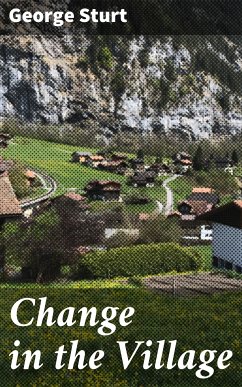In "Change in the Village," George Sturt masterfully chronicles the seismic shifts experienced in rural England during the early 20th century. Through rich, evocative prose, Sturt captures the intricate dynamics of village life, deftly blending personal narrative with social observation. The book's literary style is imbued with a sense of nostalgia and realism, as Sturt reflects on the vanishing traditions and the encroaching modernity that threaten the fabric of his community. His poignant anecdotes provide insight into the lives of villagers, making it a vital account of cultural change and historical continuity. George Sturt, born in 1863 in the Surrey village of his focus, was himself a product of the landscapes and livelihoods he describes. His background as a local tradesman and community member granted him unique access to the changing realities of rural life, allowing him to approach his subject with both intimate knowledge and critical insight. Sturt's love for his village is palpable, driven by a desire to document a way of life that was rapidly disappearing in the face of industrial advances and urbanization. I highly recommend "Change in the Village" to readers interested in social history and the impact of modernization on traditional communities. Sturt's work resonates with those who appreciate the delicate balance between progress and preservation, inviting deep reflection on the transformations that shape our lives. In this enriched edition, we have carefully created added value for your reading experience: - A succinct Introduction situates the work's timeless appeal and themes. - The Synopsis outlines the central plot, highlighting key developments without spoiling critical twists. - A detailed Historical Context immerses you in the era's events and influences that shaped the writing. - A thorough Analysis dissects symbols, motifs, and character arcs to unearth underlying meanings. - Reflection questions prompt you to engage personally with the work's messages, connecting them to modern life. - Hand-picked Memorable Quotes shine a spotlight on moments of literary brilliance. - Interactive footnotes clarify unusual references, historical allusions, and archaic phrases for an effortless, more informed read.
Dieser Download kann aus rechtlichen Gründen nur mit Rechnungsadresse in A, B, BG, CY, CZ, D, DK, EW, E, FIN, F, GR, H, IRL, I, LT, L, LR, M, NL, PL, P, R, S, SLO, SK ausgeliefert werden.









